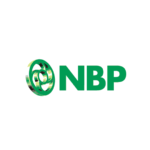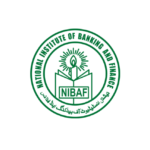
Data Science
By the end of this training participants will be able to:
- Master data preprocessing and regression techniques for effective model building.
- Build and evaluate classification and clustering models using common machine learning algorithms.
- Gain hands-on experience with neural networks and deep learning techniques, including CNNs, RNNs, and Transformers.
- Implement NLP solutions and chatbots using Python frameworks.
- Deploy machine learning models in real-world production environments using Flask/FastAPI and cloud platforms.
Session 1: Introduction to Python and Development Environment
• Welcome and Course Overview
o Introduction to Python and its role in scripting, automation, and data analysis.
o Setting expectations for the course.
• Setting Up the Development Environment
o Installing Python 3.x.
o Introduction to IDEs: Jupyter Notebooks, VS Code.
o Setting up and using virtual environments.
• Basic Python Syntax
o Writing your first Python script.
o Understanding indentation, comments, and basic code structure.
o Introduction to Python REPL and Jupyter Notebooks.
Session 2: Data Types, Variables, and Basic Operations
• Data Types
o Integers, floats, strings, booleans.
o Type conversion and casting.
• Variables and Assignment
o Naming conventions and dynamic typing.
• Basic Arithmetic and Logical Operations
o Arithmetic, comparison, and logical operators.
• Input/Output
o Accepting user input and formatting output
Session 3: Control Flow Statements
• Conditional Statements
o if, elif, else statements.
o Nesting conditions and using logical operators.
• Loops
o for and while loops.
o Loop control statements (break, continue, pass).
• Practical Exercises
o Building small programs that utilize loops and conditions (e.g., number guessing game).
Session 4: Functions and Modular Programming
•Defining Functions
o Function parameters, return values.
o Default and keyword arguments.
•Modular Programming
o Writing reusable functions.
o Organizing code into modules and using import.
•Practical Exercises
o Building a small modular program.
Section 5: Working with Lists, Tuples, and Dictionaries
• List
o Creating, accessing, and modifying lists.
o List methods (append(), remove(), etc.).
• Tuples
o Creating and using immutable sequences.
• Dictionaries
o Creating key-value pairs.
o Dictionary methods and practical use cases.
• Practical Exercises
o Building programs that utilize these data structures.
Section 6: File Handling and Exception Management
• File I/O
o Reading from and writing to text files.
o Using the with statement for file handling.
• Exception Handling
o Using try, except, else, finally blocks.
o Raising exceptions.
• Practical Exercises
o Implementing file I/O and handling exceptions in programs.
Section 7: Iterators, Generators, and Decorators
• Iterators
o Using built-in iterators.
o Creating custom iterators.
• Generators
o Creating generator functions with yield.
o Understanding the differences between generators and regular functions.
• Decorators
o Creating and using decorators.
• Practical Exercises
o Writing iterators, generators, and decorators for specific use cases (e.g., data streams).
Section 8: Working with External Libraries and APIs
• Introduction to Python Libraries
o Overview of useful libraries from the Python Standard Library (e.g., math, datetime).
o Installing and managing external libraries with pip.
• Using APIs
o Making HTTP requests with requests.
o Parsing and processing JSON data.
• Practical Exercises
o Building a small project that interacts with an external API (e.g., fetching and processing weather data).
Session 9: Data Handling (No Data Science Focus)
• Working with Data Formats
o Reading and writing CSV files with the csv module.
o Working with JSON files.
• Data Processing
o Simple data transformations and manipulation.
• Practical Exercises
o Writing scripts that process data from CSV and JSON files.
Session 10: Modular Project Development
• Project Structuring
o Best practices for structuring Python projects.
o Organizing code into multiple modules and separating concerns.
• Practical Exercises
o Begin working on a larger modular project (e.g., a text-based game, data processing script).
Session 11: Command-Line Tools and Scripting
• Command-Line Interfaces (CLI)
o Writing Python scripts that accept command-line arguments.
o Using argparse to create user-friendly CLIs.
• Automation and Scripting
o Automating tasks like file operations and data processing.
• Practical Exercises
o Building a command-line tool for automating a task (e.g., file renaming, batch data processing).
Session 12: Final Project and Presentation
• Final Project
o Completing and presenting the final project.
o Example Projects:
o Command-line tool for data processing.
o A text-based game.
o A Python script that interacts with an API.
• Project Presentation
o Presenting projects to peers.
o Discussing challenges, approaches, and solutions.
Session 13: Data Preprocessing and Regression
• Data Preprocessing in Python
o Data Cleaning and Handling Missing Values
o Data Transformation and Feature Scaling
• Exploratory Data Analysis (EDA)
o Introduction to EDA Techniques
o Visualizing Data with Matplotlib and Seaborn
o Identifying Patterns and Outliers
• Linear Regression
o Simple Linear Regression
o Model Evaluation (R-squared, MAE, MSE)
o Practical Implementation in Python
Session 14: Advanced Regression Techniques
• Multiple Linear Regression
o Multiple Variables and Their Impact
o Model Building and Interpretation
o Model Evaluation and Refinement
• Polynomial Regression
o Polynomial Features and Understanding Model Complexity
o Overfitting and Underfitting
• Support Vector Regression (SVR)
o Introduction to SVR and Kernel Functions (Linear, Polynomial, RBF)
o Model Training and Evaluation
Session 12: Final Project and Presentation
• Final Project
o Completing and presenting the final project.
o Example Projects:
o Command-line tool for data processing.
o A text-based game.
o A Python script that interacts with an API.
• Project Presentation
o Presenting projects to peers.
o Discussing challenges, approaches, and solutions.
Session 15: Decision Trees and Random Forests
• Decision Tree Regression
o Understanding Decision Trees
o Splitting Criteria (Gini, Entropy)
o Model Evaluation and Practical Applications
• Random Forest Regression
o Introduction to Random Forests
o Bagging and Ensemble Methods
o Model Comparison and Practical Applications
• Model Evaluation & Selection
o Model Evaluation Metrics (Cross-validation, Bias-Variance Tradeoff)
o Hyperparameter Tuning (Grid Search, Randomized Search)
o Recap and Summary of Regression Models
Session 16: Classification Algorithms
• Introduction to Classification Algorithms
o Overview of Classification Algorithms (Logistic Regression, KNN, Decision Trees)
o Binary vs. Multiclass Classification
o Key Use Cases for Classification
• Logistic Regression
o Binary Classification with Logistic Regression
o Logistic Function and Sigmoid Curve
o Model Training and Practical Implementation
• K-Nearest Neighbors (KNN)
o KNN Algorithm
o Distance Metrics (Euclidean, Manhattan)
o Model Evaluation using Confusion Matrix
Session 17: Dimensionality Reduction and Clustering
• Principal Component Analysis (PCA)
o Introduction to Dimensionality Reduction
o PCA Algorithm and Eigenvectors
o Practical Implementation for Feature Reduction
• Introduction to Clustering Algorithms
o Types of Clustering (Hard, Soft Clustering)
o Applications of Clustering in Data Science
• K-Means Clustering
o K-Means Algorithm
o Choosing Optimal K using the Elbow Method
o Model Evaluation and Practical Implementation
Session 18: Clustering and Neural Networks
• Hierarchical Clustering
o Agglomerative and Divisive Hierarchical Methods
o Dendrograms and Cluster Visualization
o Model Evaluation and Interpretation
• Introduction to Neural Networks (ANN)
o Architecture of Artificial Neural Networks
o Activation Functions (ReLU, Sigmoid)
o Model Training and Backpropagation
• Advanced Neural Networks
o Deeper Layers and Network Tuning
o Dropout, Regularization, and Preventing Overfitting
o Practical Implementation
Session 19: Deep Learning Techniques
• Convolutional Neural Networks (CNN)
o CNN Architecture (Convolutions, Pooling)
o Image Processing with CNNs
o Model Training and Practical Implementation
• Recurrent Neural Networks (RNN)
o RNN Architecture and Sequence Data
o Applications in Time-Series and NLP
o Model Training and Evaluation
• Transformers and Attention Mechanisms
o Introduction to Transformers
o Understanding Self-Attention and Multi-Head Attention
o Practical Implementation in NLP Tasks
Session 20: Natural Language Processing and Deployment
• Introduction to Natural Language Processing (NLP)
o Text Preprocessing (Tokenization, Stopword Removal)
o NLP Applications (Sentiment Analysis, Text Classification)
o Implementing NLP Models in Python
• Building Chatbots with LangChain
o Introduction to Chatbot Architecture
o LangChain Framework for Conversational AI
o Practical Implementation of a Basic Chatbot
• Model Deployment
o Introduction to Model Deployment with Flask or FastAPI
o Model Serialization using Pickle or Joblib
o Creating REST APIs to Serve Predictions
o Deploying Models on Cloud Platforms (AWS, Azure, GCP)
o Comprehensive Curriculum: AIN GenX offers a structured, hands-on approach to learning Data Science, covering everything from foundational statistics and machine learning to advanced topics like data analysis, predictive modeling, and data visualization.
o Industry-Relevant Skills: The program emphasizes practical, in-demand skills, making it ideal for individuals pursuing careers in data science, analytics, or artificial intelligence. The growing demand for data-driven solutions across industries attracts participants eager to enhance their employability.
o Experienced Instructors: AIN GenX likely employs experienced instructors who bring real-world insights to the training, making the learning experience engaging and directly applicable to industry needs.
o Project-Based Learning: Participants work on real-world data science projects throughout the program, gaining practical experience that they can showcase in their portfolios. This hands-on approach is essential for those transitioning into data science roles or building freelance profiles.
o Certification: Upon completing the Data Science training at AIN GenX, participants earn a certification, validating their expertise and boosting their credentials for potential employers or freelance clients.
o Networking and Community: The AIN GenX training fosters a collaborative environment, providing opportunities to network with peers, professionals, and industry experts—beneficial for career advancement and staying connected in the field of data science.
These aspects highlight the value and appeal of AIN GenX's Data Science training program for individuals looking to enhance their technical skills and career prospects in the data-driven world.
Prior Programming Experience Required
Data Science Participants should know basic fundamentals of Programming. You can search for these topics of google or we can help you out on this once you are enrolled in the course.
Basic Computer Literacy
Participants should have a basic understanding of how to operate a computer, including tasks like installing software and managing files.
Interest in Data Science Applications
This program is ideal for individuals who are passionate about fields where Data Science is widely applied, such as analytics, machine learning, business intelligence, or automation.
Commitment to Learning
Data Science training, such as the one at AIN GenX, can be intensive. Participants should be prepared to dedicate time to completing assignments, projects, and participating actively in class sessions.
Educational Background
While no formal degree is required, a background in mathematics, statistics, or a related field is beneficial, particularly if you plan to pursue advanced topics like machine learning or AI after the training.
Hands-on Learning with Real Projects
The bootcamp emphasizes practical, project-based learning, allowing students to work on real-world data science projects. This enables participants to apply their knowledge immediately and build a portfolio to showcase their data-driven skills.
Comprehensive Curriculum
The curriculum covers a wide range of topics, from fundamental statistics and data manipulation to advanced techniques in machine learning, data visualization, and big data analytics. This broad coverage equips learners with versatile skills applicable across various industries.
Experienced Instructors
AIN GenX’s bootcamp is led by industry experts with deep experience in data science. They provide real-world insights and mentoring, enhancing the learning experience by aligning it with the latest industry trends and best practices.
Flexible Learning Mode
The bootcamp may offer flexible learning tracks, including part-time and full-time options, allowing working professionals and students to learn at their own pace.
Certification
Upon completing the bootcamp, participants receive a Data Science certification, which can help them stand out in the job market by showcasing their proficiency and commitment to potential employers.
Strong Focus on Freelancing Skills
AIN GenX integrates freelancing platforms like Upwork into the bootcamp, offering specialized training on how to secure data science projects and work independently. This unique component is valuable for those looking to establish a freelance career.
Cost-Effective Learning
Compared to longer academic programs, bootcamps like AIN GenX’s offer fast-tracked, affordable training that prepares you for a data science career in a short time frame.
Exposure to Modern Tools and Technologies
Participants gain hands-on experience with popular data science tools and libraries like Pandas, NumPy, Matplotlib, and scikit-learn, ensuring they are equipped with the latest skills used by data professionals.
o Data Science and Machine Learning
Python is the go-to language for data science and machine learning because of its powerful libraries such as Pandas, NumPy, Matplotlib, Scikit-learn, and TensorFlow. With these skills, you can work as a:
• Data Scientist
• Machine Learning Engineer
• Data Analyst
o Web Development
Python, with frameworks like Django and Flask, is widely used for building web applications. After learning Python, you can pursue careers in:
• Full-stack Web Development
• Backend Web Development
• API Development
o Automation and Scripting
Python's simplicity makes it ideal for automating repetitive tasks, which is highly valuable in areas such as system administration and software testing. You can use Python for:
• Task Automation
• DevOps and Cloud Engineering
• Test Automation Engineering
o Artificial Intelligence (AI) and Robotics
Python is also the core language for AI development, robotics, and deep learning. Learning Python through a bootcamp equips you with the fundamentals for roles like:
• AI Developer
• Robotics Engineer
• Deep Learning Specialist
o Financial Analysis and Fintech
In the finance industry, Python is used for analyzing large datasets, building financial models, and developing fintech applications. Potential roles include:
• Quantitative Analyst
• Financial Modeler
• Fintech Developer
o Game Development
Python is also used in game development, particularly with libraries like Pygame. While not the most popular in this domain, Python still has a place in smaller game projects and game logic development.
o Freelancing and Consulting
AIN GenX offer Upwork or freelancing guidance, enabling learners to work on short-term projects as Python developers, which could be an entry point for:
• Freelance Developer
• Independent Python Consultant
o Cybersecurity
Python is frequently used in cybersecurity for writing scripts, automating security protocols, and building ethical hacking tools, opening doors for positions like:
• Cybersecurity Analyst
• Ethical Hacker
• Penetration Tester
o Blockchain and Cryptocurrency
Python is increasingly popular in blockchain development for creating smart contracts and cryptocurrency algorithms, making it a critical skill for roles such as:
• Blockchain Developer
• Cryptocurrency Analyst
o Career Flexibility
Python's versatility allows professionals to switch industries easily, as it's used across various fields like healthcare, e-commerce, education, and logistics. Learning Python can help you pivot into tech-heavy roles within your existing industry.
What are the prerequisites for joining the Data Science?
This Python bootcamps do not require any prior programming experience. Basic computer skills and a willingness to learn are usually sufficient. However, familiarity with basic mathematical concepts can be helpful, especially for data science tracks.
What will I learn in a Data Science?
A Python bootcamp typically covers:
Basic Python syntax and programming fundamentals
Data structures and algorithms
Libraries like Pandas, NumPy for data analysis
Projects like building apps, data analysis, or machine learning
Is the Data Science suitable for complete beginners?
Yes, this Python bootcamps are designed for complete beginners and start with the basics, making it accessible to people with little or no coding background.
What career opportunities can I pursue after completing the Data Science?
Completing a Python bootcamp can open doors to various roles, including:
Data Analyst
Python Developer
Machine Learning Engineer
Web Developer
Automation Specialist
Freelancer in Python-related projects
What is the duration of the course?
Having a basic understanding of programming is helpful, but Python is beginner-friendly. You can start learning Data Science with Python without extensive programming knowledge, as Python's syntax is simple and intuitive.
Is there a certification provided after completion?
Yes, most bootcamps, including those like AIN GenX, offer a certificate of completion. This certificate can be added to your resume and LinkedIn profile to showcase your skills to potential employers.
How long will it take to learn Data Science with Python?
It will take 3 months to complete Data science with Python
Is Data Science with Python useful for non-tech industries?
Yes, data science is transforming industries like healthcare, finance, marketing, and even sports. Learning data science with Python enables you to solve real-world business problems by deriving actionable insights from data.
Can I transition into Data Science if I’m from a non-technical background?
Yes! Many successful data scientists come from diverse backgrounds such as business, economics, engineering, and even social sciences. Python’s ease of learning and availability of extensive learning resources make it possible for people from various fields to transition into data science.
Course Fee
● Online
Rs. 9,000/- x 2 Installment
● In-Person:
Rs. 18,000/- x 2 Installment
Account Details
Bank: Habib Bank Limited
Account Title: AIN GenX
Account No: 5910-70000512-03
IBAN No: PK08 HABB 0059 1070 0005 1203
Facilitators

Irfan Bakaly
Data Analyst
25+ years of experience in Data Analysis

Noor Surani
Tech Entrepreneur
25+ years of experience in Data Analysis

Sohail Ahmed
Data Scientist
5+ years Experience of Data Science

AI Engineer
AI Engineer
4+ years of experience in AI Engineering
Who this course is for:
Students & Fresh Graduates, Intermediate Learners, Software developers & engineers, Researchers & academicians
Duration
● 5 Months (60 Hours)
Classes
● In-Person/Online
Schedule
- Day: Saturday's Only
- Timing: 11:00 am - 02:00 pm (PST)
Starting From
● Saturday, 19 April, 2025
Participants from Top Organizations












Certificates

